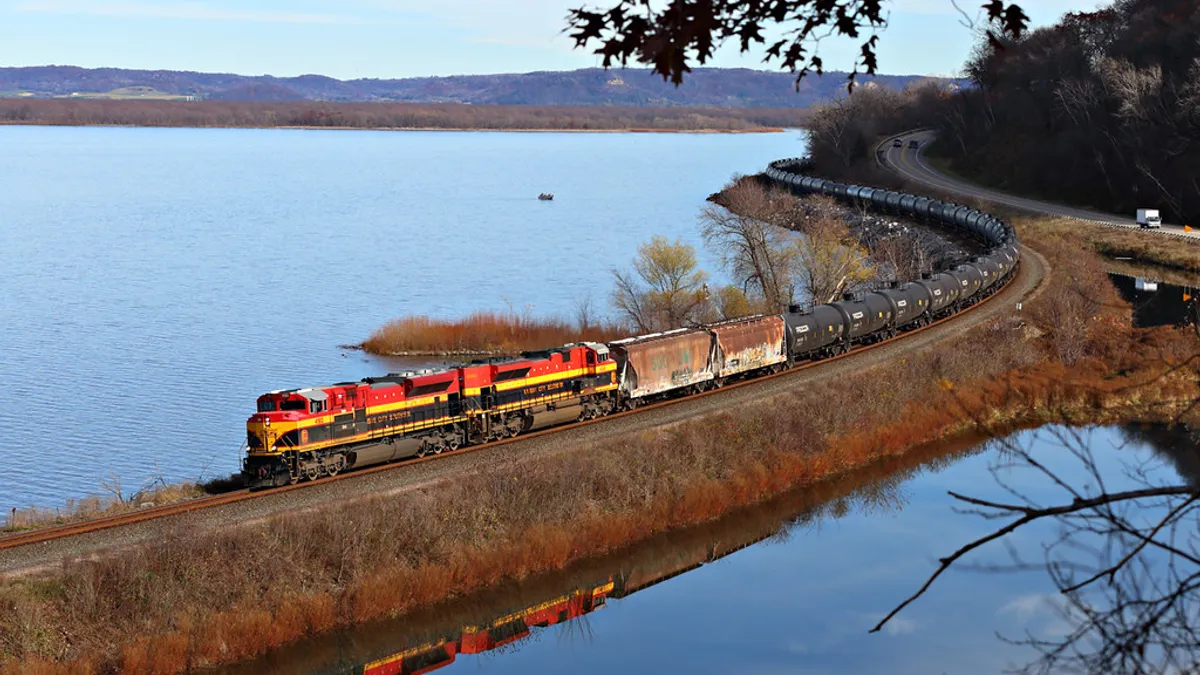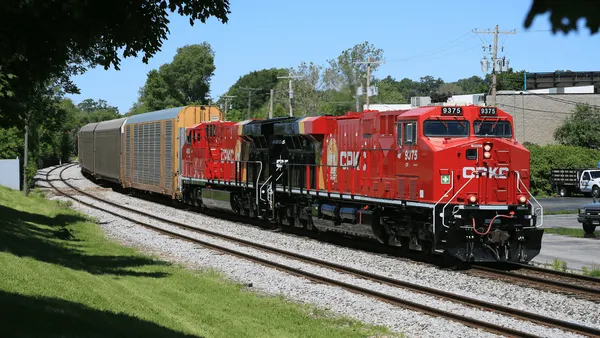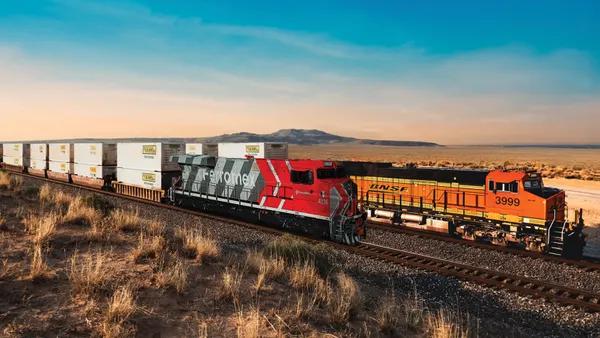Federal regulators on Wednesday approved Canadian Pacific’s $31 billion deal to buy Kansas City Southern, paving the way for the first single-line railroad linking the United States, Mexico and Canada.
The decision from the Surface Transportation Board allows for the creation of a combined system known as Canadian Pacific Kansas City as early as April 14. Canadian Pacific and Kansas City Southern will announce more details on the creation of the CPKC system in the coming days, according to a joint statement.
“A combined CPKC will connect North America through a unique rail network able to enhance competition, provide improved reliable rail service, take trucks off public roads and improve rail safety by expanding CP’s industry-leading safety practices," said Canadian Pacific President and CEO Keith Creel.
The deal's approval ends a two-year saga for control of Kansas City Southern. Over the course of 2021, Canada's two railroads battled for the right to acquire the United States' smallest Class I railroad by revenue. Though Canadian Pacific ultimately won the bidding war, regulators' concerns over competition and a delayed environmental standards report held up the deal's approval until this week.
It also marks a historic moment for the industry as the deal is the first consolidation of two major railroads since the 1990s. Once the acquisition is completed, there will only be six Class I rail carriers in North America – in 1980, prior to the deregulation of the industry, there were 39.
Regulators expect deal to boost rail service
In its decision, the STB said the acquisition would grow the nation's freight rail system, add new efficiencies and reduce travel time. The deal is expected to shift approximately 64,000 truckloads annually from North America’s roads to rail.
"The Transaction should result in qualitative benefits to the shipping public, including more single-line service, new and improved routes, more gateway choices, more reliable service, and reduced terminal delay," the board wrote.
Given that the deal is an "end-to-end merger," the STB also expected limited impact to shippers with no track redundancies or reroutings.

Consolidation in the rail industry has created service problems in the past. Union Pacific's acquisition of Southern Pacific in 1996, for example, spurred a transportation meltdown with major bottlenecks across the Southwest in addition to a rise in fatal derailments.
At a press conference Wednesday, STB Chairman Marty Oberman said that he doesn't expect any disruption from the integration of Canadian Pacific and Kansas City Southern given the makeup of their individual networks. If service problems do arise, Oberman said CPKC would be required to submit a service recovery plan to the STB and provide more detailed information about their operations.
"Single Line service between Canada through the United States and Mexico will enhance trade productivity [and] enhance shipper opportunities to advance their own businesses," Oberman said. "That was one of the key factors that helped us define that this merger is in the public interest."
Addressing anti-competition concerns
Much of the regulatory pushback to the deal has centered around whether the acquisition is anticompetitive in nature.
In January, the Department of Justice sent the STB a letter asking whether further consolidation in the rail industry would impact competition and service, especially “in light of the recent supply chain disruptions that have wreaked havoc on American consumers and businesses.”
Addressing competition concerns in its decision, the STB said that Canadian Pacific and Kansas City Southern are individually smaller than the other five Class I railroads. Even after the deal goes through, the combined company will “continue to be the smallest Class I railroad.”
The board, however, will impose a number of conditions on the final merger to protect competition, including the obligation to keep connection points between CPKC and other railroads open, “preserving efficient routing options via other railroads that were available to shippers before the merger.”
The STB will also establish an “unprecedented seven-year oversight period” in addition to data-reporting requirements. And, upon customer request, CPKC will also have to justify rate increases over a certain level on interline movements.
Oberman said that a combined Canadian Pacific and Kansas City Southern would allow it to handle more volumes and therefore become more competitive with Class I carriers.
"I would hope that to the extent intermodal traffic is stimulated from the ports of Canada and the port in Mexico, it will stimulate these American railroads to get into the game at a more vigorous level and we'll all be better off," Oberman said. "Ultimately, the U.S. public will benefit from more competitive forces.”















